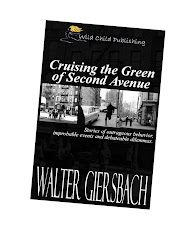 |
| Early baseball game played at Elysian Fields, Hoboken (Currier & Ives lithograph) |
Well, no. A story in the New York Morning News reported on a game on Oct. 21, 1845, between
the New York Ball Club and a Brooklyn team.
New York won 24-4. So there!
But, wait a minute, the same news
story refers to earlier games played
there. It stated, “A friendly match of
the time-honored game of Base was played yesterday at the Elysian Fields,
Hoboken.” There was a rematch on Oct. 24
at the Star Club on Myrtle Avenue in Brooklyn.
(New York won that game too, 37-19.)
If you go looking for the Elysian Fields, the area is now occupied by a
Maxwell House Coffee plant.
What the heck? The game probably evolved from a number of
enthusiastic players and fans in the mid-1840s.
According to Dr. David Q. Voight in a three-volume history of baseball,
the game probably came from the 18th century English game of rounders. Rounders was also played by soldiers at
Valley Forge when they weren’t fighting the Redcoats.
So let’s establish our history by
the rules of the game. A New York Times story in 1990 reported,
“Box scores for the two October 1845 games, played with eight men a team,
follow the categories of cricket, reporting only the number of runs and ‘hands
out,’ or number of times a hitter made an out.”
Cricket lost its popularity only after the Civil War.
There’s been little serious historical
research until recent decades. So
there’s still room enough for lots of argument.
As for General Abner Doubleday in
1839, well, he was a cadet at West Point
when he was supposed to have laid out the first baseball diamond. And he never took credit for anything having
to do with baseball. This poses a
problem for the Baseball Hall of Fame in Cooperstown, NY. Historian and author John Bowman said, “They
want to play it both ways. They want to
be known as serious historians of the game, but they can’t undermine their
tourist business.”
And Cooperstown has copyrighted
the phrase, “Birthplace of Baseball.” So
there!



